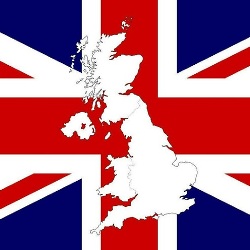UK Gambling Market Hits Record Revenues in 2016

According to the UK Gambling Commission (UKGC), the country’s gambling industry generated a gross yield of £13.8 billion in the 12 month period between October 2015 and September 2016, representing a new all-time high for the industry. That figure was also up by around 3% compared to the £13.4 billion collected during the previous reporting period of April 2015 to March 2016.
iGaming Now 32% Market Share
Online gambling was the biggest gambling component in the UK for the second consecutive reporting period, with Gross Gambling Yield (GGY) hitting £4.5 billion ($5.8bn), a figure that is higher by 7% from the April 2015 to March 2016 period. As a result, the segment now accounts for 32% of the country’s gambling market overall. Naturally, online casino games commanded the biggest share of GGY, or £2.4 billion, of which £1.6 billion was derived from online slot games. Also producing impressive GGY was betting exchanges, with wagers on soccer reaching £1.4 billion ($1.8bn) for the period.
At the top of list, however, was the National Lottery, which offers its products both online and via retail shops, with the vertical generating a whopping £7.4 billion, although £1.7 billion of that amount was subsequently funneled back into the community in order to fund charitable causes.
Online Gaming Report
Highlighting the growing importance of the online sector to the gambling industry, a report released in March revealed that 48% of UK participants admitting to gambling over the past 4 weeks, of which 17% had done so online. As UKGC program director, James Green, subsequently stated:
“This report paints an important picture of how consumers in Britain choose to gamble – identifying emerging trends and potential risks to the public. We are also now able to provide a more detailed snapshot of online behaviors, which featured for the first time last year. Effective protections come from strong evidence. Our research puts us in a powerful position to better understand the needs of gambling consumers.”
Land-Based Figures Higher
In terms of land-based businesses, the UK’s 147 brick-and-mortar casinos reported a 15% increase in GGY to £1.2 billion ($1.5bn), although fixed-odds betting terminals (FOBTs) placed in thousands of betting shops throughout the country generated another £1.8 billion to the overall tally, with the segment now accounting for a huge 56% of total off-line revenues. This also means that UK residents lost an additional £57 million gambling on FOBTs from the previous reporting period.
FOBTs and Responsible Gambling
The latest figures were released by the Gambling Commission’s industry regulator only weeks before a government review of the industry is expected to be published. An important part of the review will focus on FOBTs, which let gamblers put up to £100 on the line every 20 seconds on an electronic casino-style game. Understandably, FOBTs have become a main point for campaigners who want to support stricter regulations, and both the Labour and Liberal Democrats having promised to cut the maximum bet to £2 a spin if they won the general election which just took place on June 8th. Also focusing on the social cost of FOBTs is the Campaign for Fairer Gambling, with the organization recently stating:
“The bizarre experiment to allow high stakes, high speed roulette in betting shops is delivering huge profits for the bookmakers at the expense of an even greater cost to society and the economy. More jobs would be created if money lost on FOBTs was spent elsewhere.”
Online Gambling Act
The Online Gambling Act was introduced to the United Kingdom in 2005 as a provision on remote gambling services. Online gambling, of course, has had its ups and downs over the years since, but it has still continued to grow at a reasonable rate. The gambling law was then amended in 2014 to require all operators who were granted access to United Kingdom players to get a license from the Gambling Commission.
The 15 percent Point of Consumption tax which also came into play further required that UK operators had to pay 15 percent of their GGY in taxes. Consequently, the gross gambling yield from iGaming skyrocketed from £1.1 billion to £4.5 billion, with the remote betting, bingo and casino sectors making up almost one-third of the entire market.
Meanwhile, as mentioned, FOBTs have been brought up in industry reports and media publications on more than one occasion, due to their controversial nature. Nevertheless, although these machines have been demonized, they continue to be an important part of major retail businesses, and any regulatory modifications could impact their profits greatly. The results from this review is expected to be released sometime around mid-June.








